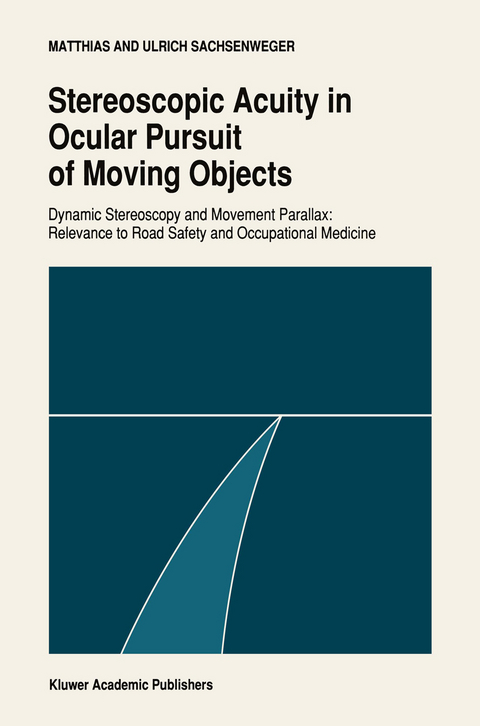
Stereoscopic acuity in ocular pursuit of moving objects
Springer (Verlag)
978-0-7923-1486-8 (ISBN)
Preface.- 1 Introduction.- 2 Elements of dynamic stereoscopic vision.- 2.1 Monocular dynamic visual acuity.- 2.2 Stereoscopic vision.- 2.3 Dynamic parallactoscopy.- 2.4 More empirical factors of stereoscopic vision.- 2.5 Dynamic vision.- 3 Equipment and methods for testing dynamic stereoacuity.- 3.1 Determination of dynamic stereoacuity.- 3.2 Determination of kinetoparallactic stereoacuity.- 4 Normal values of dynamic stereoacuity.- 4.1 Dynamic stereoacuity.- 4.2 Dynamic parallactoscopy.- 5 Variations of test objects and testing methods.- 5.1 Dynamic stereoacuity.- 5.2 Dynamic parallactoscopy.- 6 Dynamic stereoacuity in response to changes in perception conditions.- 6.1 Dynamic stereoacuity.- 6.2 Dynamic parallactoscopy.- 7 Effect of psychosensorial factors.- 7.1 Fatigue.- 7.2 Effect of psychosedatives.- 7.3 Effect of hypnotics.- 7.4 Short-time and long-time exercises.- 7.5 Asthenopia.- 8 Comparison between dynamic and kinetoparallactic stereoacuities.- 9 Conclusions.
| Übersetzer | W. Ghantus |
|---|---|
| Zusatzinfo | 136 p. |
| Verlagsort | Dordrecht |
| Sprache | englisch |
| Maße | 155 x 235 mm |
| Themenwelt | Medizin / Pharmazie ► Medizinische Fachgebiete ► Arbeits- / Sozial- / Umweltmedizin |
| Medizin / Pharmazie ► Medizinische Fachgebiete ► Augenheilkunde | |
| Studium ► Querschnittsbereiche ► Prävention / Gesundheitsförderung | |
| ISBN-10 | 0-7923-1486-7 / 0792314867 |
| ISBN-13 | 978-0-7923-1486-8 / 9780792314868 |
| Zustand | Neuware |
| Haben Sie eine Frage zum Produkt? |
aus dem Bereich


